If you’re considering buying a house in Singapore, you’re likely wondering whether it’s worth the investment. With Singapore’s reputation as one of the world’s most expensive cities, it’s understandable to have concerns about the cost of homeownership. However, there are many factors to consider when deciding whether to buy a house in Singapore.
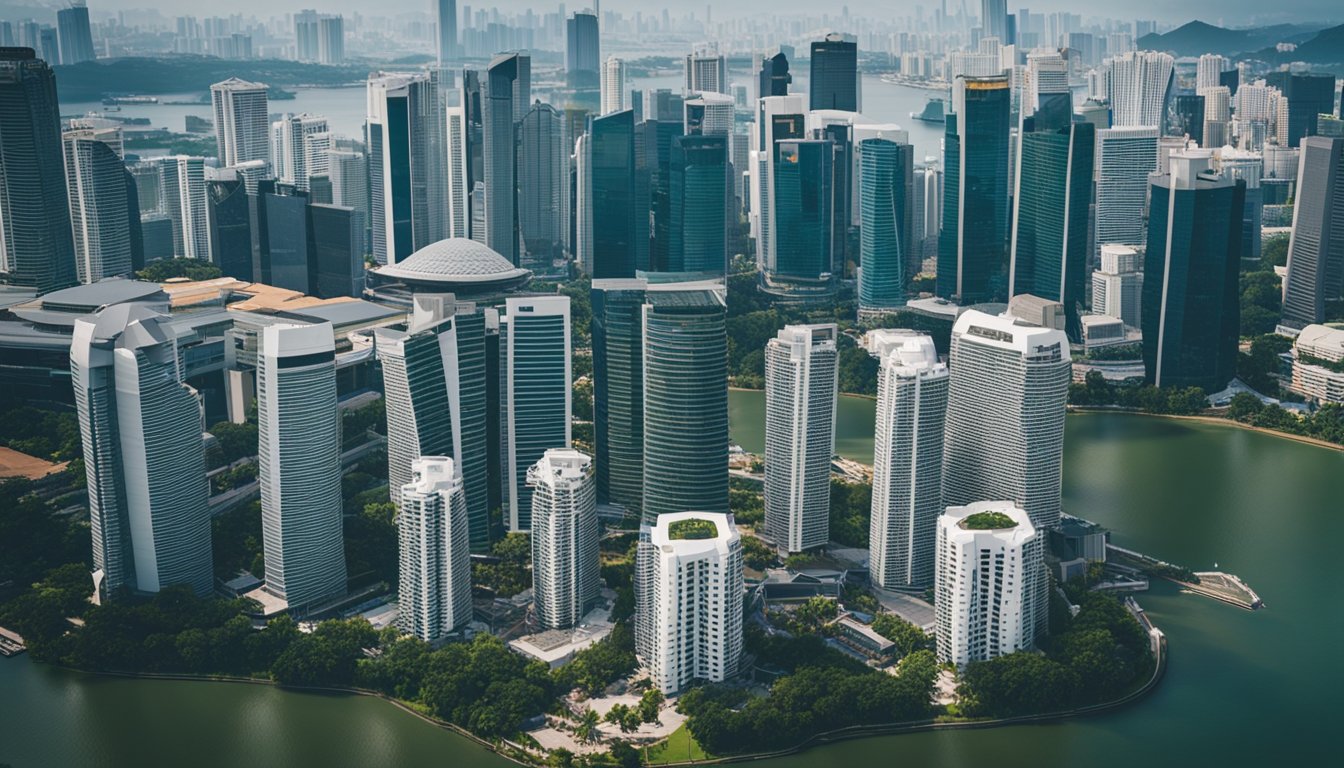
Understanding the Singapore property market is essential before making a decision. The market is known for its stability, but it’s also highly regulated, which means that prices can be influenced by government policies. Financial considerations, such as your budget, eligibility for loans, and additional homeownership costs, are also crucial to think about. Additionally, finding the right location and going through the home buying process can be time-consuming and stressful. In this article, we’ll explore these factors and more to help you decide whether buying a house in Singapore is worth it for you.
Key Takeaways
- Understanding the Singapore property market is crucial before deciding to buy a house.
- Financial considerations, such as your budget and additional homeownership costs, are essential to consider.
- Finding the right location and going through the home buying process can be time-consuming and stressful.
Understanding the Singapore Property Market
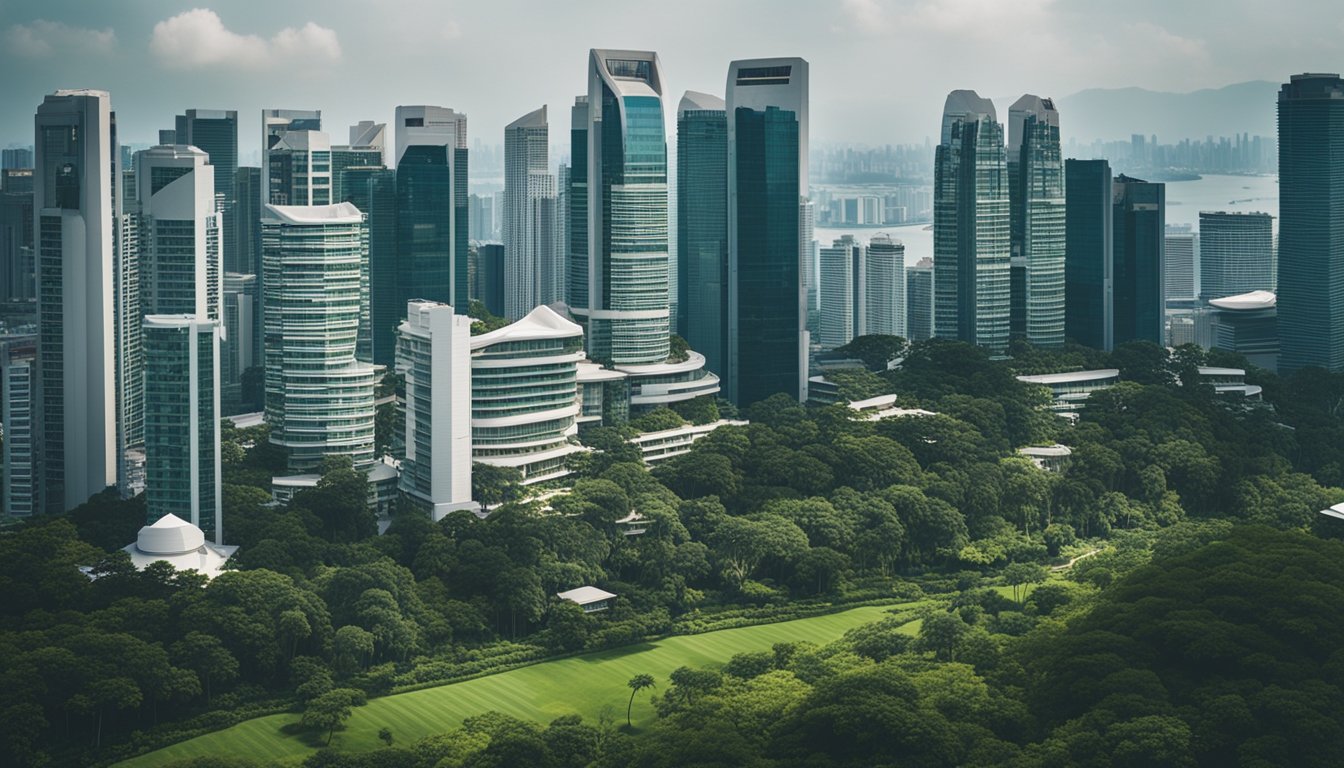
If you are considering buying a house in Singapore, it is important to understand the property market conditions and the different types of properties available. In this section, we will discuss the HDB flats vs private properties, the property market conditions, and investing in property.
HDB Flats vs Private Properties
HDB flats are public housing units built by the Singapore government to provide affordable housing for Singaporeans. They are available for purchase by Singapore citizens and permanent residents. HDB flats are generally cheaper than private properties, and they come with restrictions on resale and renovation. On the other hand, private properties are more expensive, but they offer more freedom in terms of resale and renovation.
Property Market Conditions
The Singapore property market is influenced by various factors such as interest rates, government policies, and economic conditions. The government has implemented cooling measures to prevent the property market from overheating, which include stamp duties, loan-to-value limits, and seller’s stamp duties. These measures have helped to stabilize the property market and prevent a property bubble.
According to a report by PropertyGuru Singapore, the rental market in Singapore has started showing symptoms of slowing down, with the Singapore Property Rental Price Index falling by 2.9% QoQ. This is the first recorded decline since 2018. With the completion of more condo units and BTO flats, demand has softened and supply has increased.
Investing in Property
Investing in property can be a good way to build wealth in Singapore, but it is important to do your research and understand the risks involved. Private properties generally offer higher potential returns, but they also come with higher risks. It is important to consider factors such as location, property type, and market conditions when investing in property.
The Singapore government has introduced various measures to encourage Singaporeans to invest in property, such as the CPF Housing Grant and the Enhanced Housing Grant. These grants are available for eligible Singaporeans who are purchasing their first HDB flat. They can help to offset the cost of purchasing a property and make it more affordable for first-time buyers.
In conclusion, understanding the Singapore property market is crucial if you are considering buying a house in Singapore. By understanding the different types of properties available, the property market conditions, and the risks and benefits of investing in property, you can make an informed decision and find the right property for your needs.
Financial Considerations
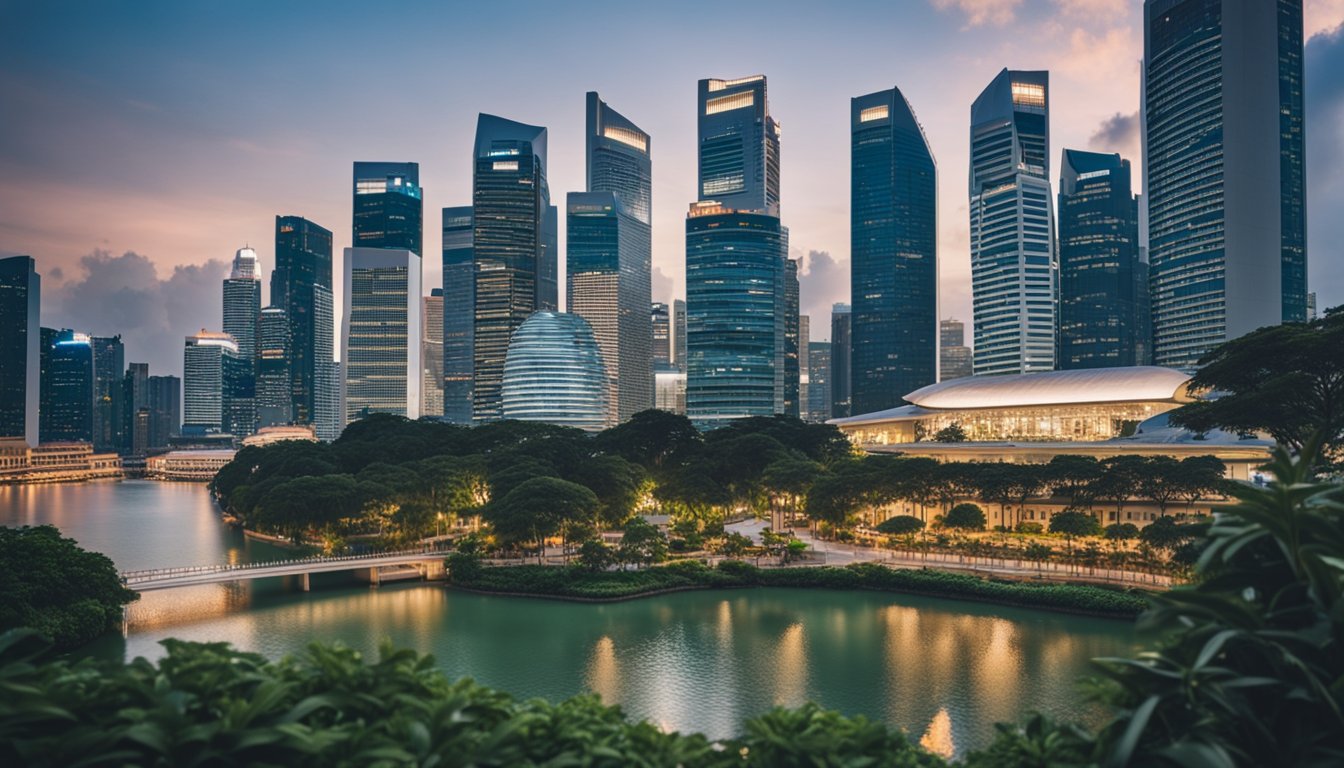
If you are considering buying a house in Singapore, there are several financial considerations that you need to take into account. In this section, we will explore some of the key financial considerations that you should keep in mind.
Budgeting for Your Dream Home
Before you start looking for your dream home, it is important to have a budget in mind. You should consider factors such as your income, expenses, and savings to determine how much you can afford to spend on your new home. Keep in mind that you will also need to factor in additional costs such as stamp duty, legal fees, and home loan fees.
Understanding Stamp Duty and Legal Fees
When buying a property in Singapore, you will need to pay stamp duty and legal fees. The amount of stamp duty you need to pay will depend on the purchase price of the property. You can use the Inland Revenue Authority of Singapore (IRAS) website to calculate the amount of stamp duty you will need to pay. Legal fees will also need to be paid to your lawyer for their services in handling your property transaction.
Exploring Home Loans and Mortgages
Most people will need to take out a home loan or mortgage to finance their property purchase. It is important to shop around and compare different home loan packages to find the one that is right for you. You should consider factors such as the interest rate, loan tenure, and repayment amount when choosing a home loan package. Keep in mind that you will need to make a deposit when taking out a home loan, and that there may be restrictions on the amount of money you can borrow based on the property’s valuation limit.
Overall, buying a house in Singapore can be a great investment. By keeping these financial considerations in mind, you can ensure that you make a smart and informed decision when it comes to purchasing your dream home. Remember to also take into account property cooling measures and CPF savings withdrawal limits when making your decision.
Eligibility and Regulations
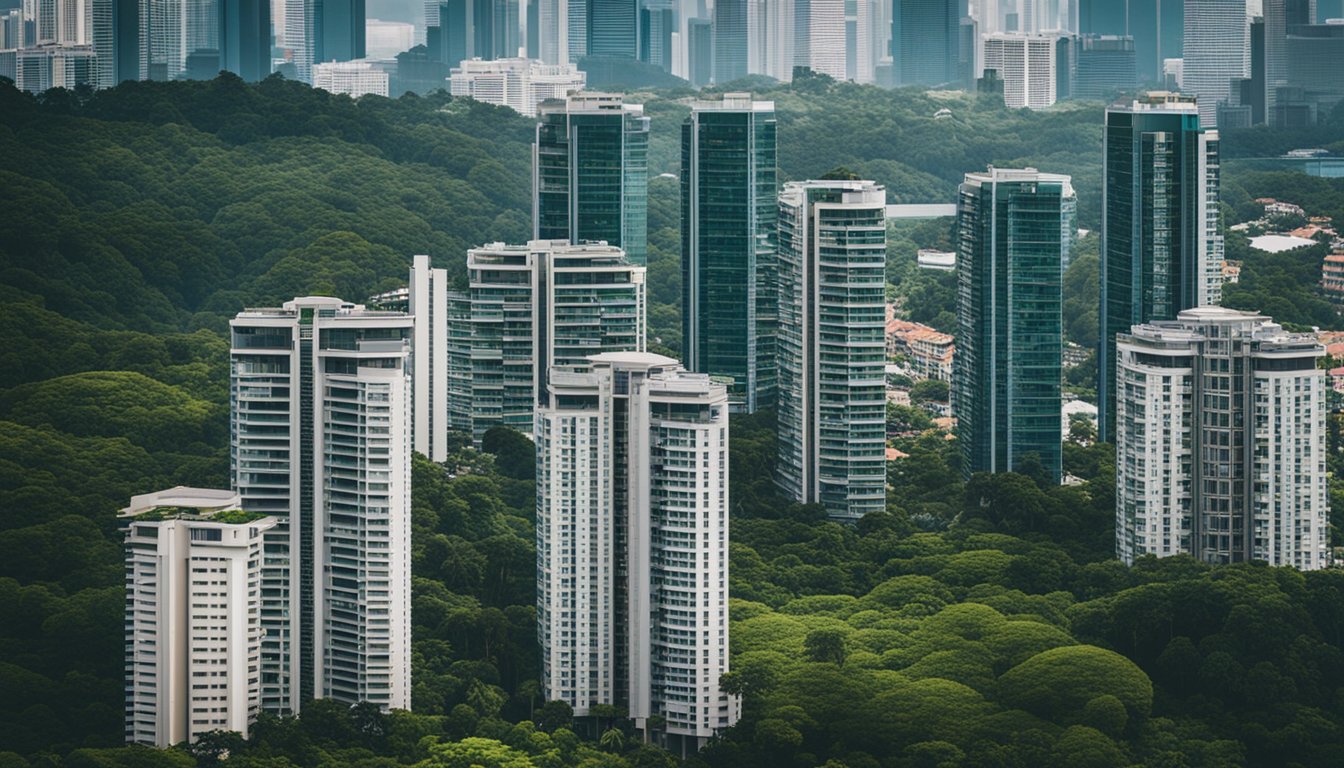
If you’re considering buying a house in Singapore, there are certain eligibility criteria and regulations you need to be aware of. In this section, we’ll discuss the key requirements and rules that you need to keep in mind.
Eligibility Criteria for Buyers
To be eligible to buy a house in Singapore, you must be either a Singapore Citizen (SC) or a Permanent Resident (PR). If you’re a foreigner, you can still buy a property in Singapore, but there are certain restrictions that you need to be aware of.
If you’re an SC or a PR, you can buy any type of property in Singapore, including HDB flats, Executive Condominiums (ECs), and private properties. However, if you’re a foreigner, you can only buy private properties such as private apartments and condominiums. You can also buy ECs that are at least 10 years old, but you’ll need government approval to purchase landed properties.
Property Ownership Regulations for Foreigners
Foreigners who want to buy a property in Singapore must also be aware of certain regulations. For example, if you’re a foreigner who wants to buy an EC, you must form a family nucleus with at least one other Singapore Citizen or Permanent Resident. This means that you can’t buy an EC on your own as a foreigner.
Foreigners who want to buy private properties in Singapore must also pay additional buyer’s stamp duty (ABSD). The ABSD rates for foreigners are higher than those for Singapore Citizens and Permanent Residents. For example, if you’re a foreigner buying your first residential property in Singapore, you’ll need to pay 20% ABSD on the purchase price. If you’re a Singapore Citizen or Permanent Resident buying your first residential property, you’ll only need to pay 0% to 5% ABSD.
In addition to the ABSD, foreigners who want to buy a property in Singapore must also be aware of the Seller’s Stamp Duty (SSD). The SSD is a tax that is payable if you sell your property within a certain period of time after buying it. The SSD rates for foreigners are also higher than those for Singapore Citizens and Permanent Residents.
Overall, while there are certain regulations and eligibility criteria that you need to be aware of, buying a house in Singapore can be a great investment. With a stable economy, strong property market, and attractive rental yields, it’s definitely worth considering if you’re looking to invest in property in the region.
Finding the Right Location
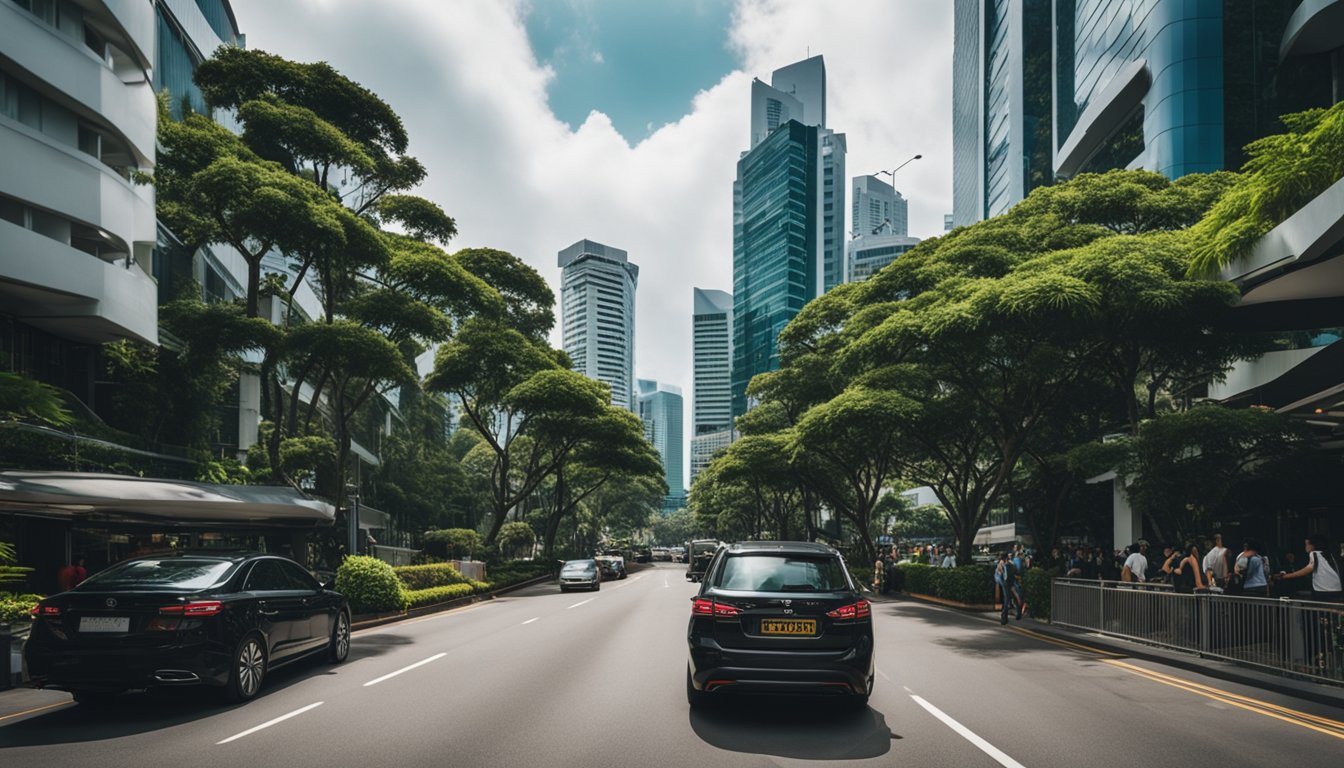
When it comes to buying a house in Singapore, finding the right location is crucial. This is because location affects not only the value of the property but also your daily life. Here are some factors to consider when finding the right location for your property.
Proximity to Amenities and Work
One of the top considerations when choosing a location is proximity to amenities and work. You want to be close to essential amenities such as schools, hospitals, public transportation, and shopping centres. This is especially true if you have children or elderly parents who require frequent medical attention. You also want to be close to your workplace to avoid long commutes and save on transportation costs.
To help you assess the proximity of amenities and work, you can create a table of the locations of the amenities and your workplace and calculate the distance and time it takes to get there. This will help you narrow down the locations that are most convenient for you.
Assessing Property Size and Type
Another factor to consider is the size and type of property you want. Singapore has a wide range of properties, from small apartments to large landed properties. The size and type of property you choose will depend on your budget, lifestyle, and family size.
If you have a large family or require more space, you may want to consider a landed property such as a bungalow or terrace house. These properties offer more space and privacy but are also more expensive. If you are on a budget, you may want to consider a smaller apartment or a condominium.
It is also important to consider the type of property you want. Singapore has three types of properties: HDB flats, executive condominiums (ECs), and private properties. HDB flats are the most affordable but have restrictions on ownership and resale. ECs are a hybrid of public and private housing and have fewer restrictions than HDB flats but are still subject to certain rules. Private properties are the most expensive but offer the most flexibility and freedom.
In conclusion, finding the right location for your property is crucial when buying a house in Singapore. Consider factors such as proximity to amenities and work, property size and type, and your budget and lifestyle. By doing your research and assessing your needs, you can find the perfect location for your dream home.
The Home Buying Process

Congratulations, you’ve decided to buy a house in Singapore! It’s an exciting journey, but it can also be overwhelming. Here’s a quick guide to help you navigate the home buying process.
Securing an IPA and Home Insurance
Before you can purchase a property in Singapore, you need to secure an In-Principle Approval (IPA) from a bank or financial institution. The IPA will give you an idea of how much you can borrow and the interest rates you’ll be paying. You can use this information to narrow down your property search and ensure you’re looking at properties within your budget.
Once you’ve found a property you want to buy, you’ll need to purchase home insurance. This is a requirement for getting a housing loan and protects your property against damage or loss. Make sure to shop around for the best home insurance policy that suits your needs.
The Role of CPF in Home Ownership
The Central Provident Fund (CPF) is a savings plan that Singaporeans and Permanent Residents contribute to throughout their working lives. It can be used to finance your home purchase through the CPF Housing Grant or the HDB Concessionary Loan.
The CPF Housing Grant is a financial assistance scheme that helps first-time buyers afford their first home. The grant can be used for downpayment or to offset the purchase price of the property. The amount of the grant depends on your income and the type of property you’re purchasing.
The HDB Concessionary Loan is a low-interest rate loan offered by the Housing and Development Board (HDB) to help Singaporeans and Permanent Residents purchase their first HDB flat. The loan can be repaid using your CPF savings, making it a convenient option for many buyers.
In summary, securing an IPA, purchasing home insurance, and understanding the role of CPF in home ownership are important steps in the home buying process. Make sure to do your research and consult with professionals to ensure a smooth and successful home purchase.
Additional Homeownership Costs
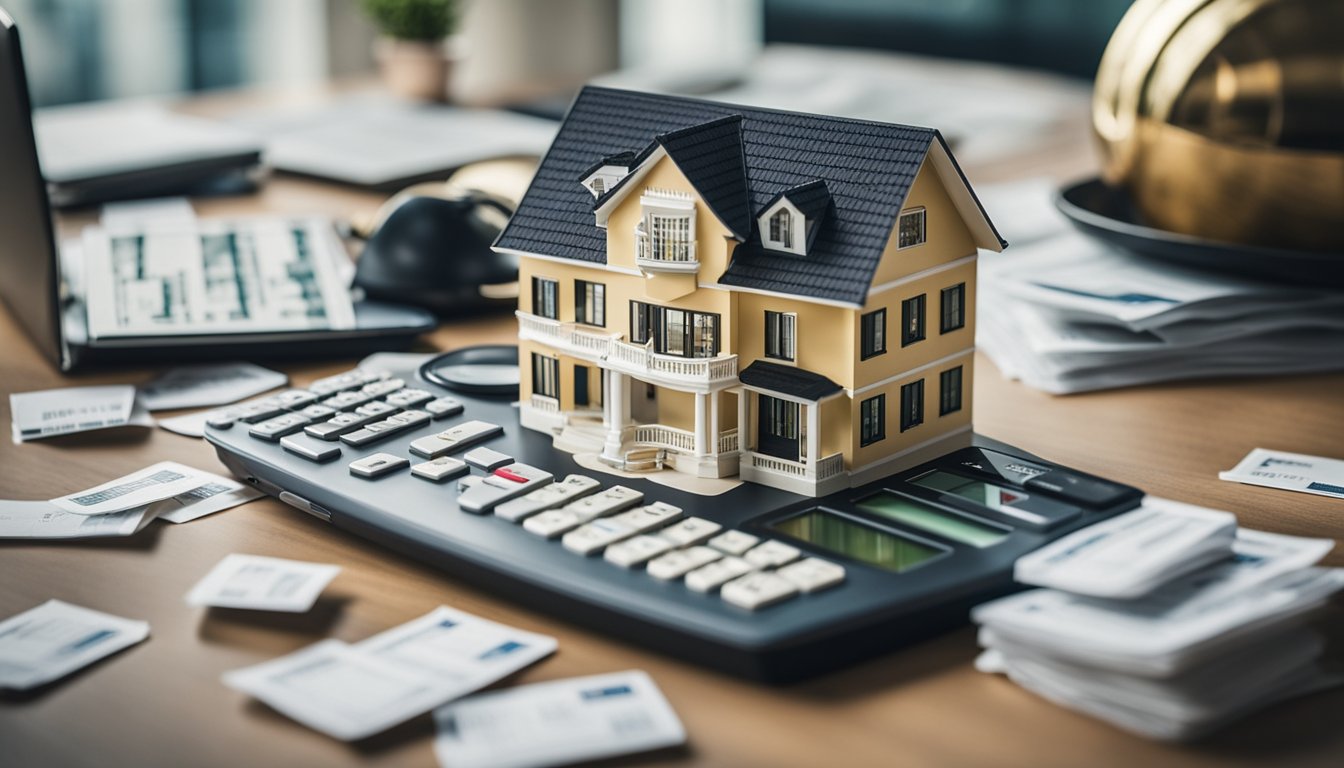
Owning a house in Singapore comes with additional costs beyond the purchase price. These costs can add up quickly and it’s important to consider them before making a decision. Here are some of the additional homeownership costs you need to keep in mind:
Maintenance and Renovation Costs
Maintaining and renovating your home is an ongoing expense that you need to budget for. Regular maintenance such as cleaning, painting, and repairs can cost you a few hundred dollars a year. Renovation costs can be much higher, depending on the extent of the work you want to do. If you plan to renovate your home, you may also need to factor in furnishing costs.
Property Tax and Other Recurring Fees
In addition to maintenance and renovation costs, you will also need to pay property tax and other recurring fees. Property tax is calculated based on the annual value of your property and is payable to the Inland Revenue Authority of Singapore (IRAS). The annual value of your property is the estimated gross annual rent that your property can fetch if it were to be rented out. You can use the IRAS property tax calculator to estimate how much you will need to pay.
Other recurring fees include maintenance fee and conservancy charges. Maintenance fee is payable if you live in a private property or a Housing and Development Board (HDB) flat that is part of a condominium or a strata-titled property. The fee covers the cost of maintaining the common areas of the property, such as the swimming pool and the gym. Conservancy charges are payable if you live in an HDB flat and cover the cost of maintaining the common areas of the estate, such as the lifts and the playground.
It’s important to factor in all these additional homeownership costs when you’re considering buying a house in Singapore. Make sure you have a realistic budget in place and that you’re prepared for the ongoing expenses that come with homeownership.
Living in Singapore as a Homeowner
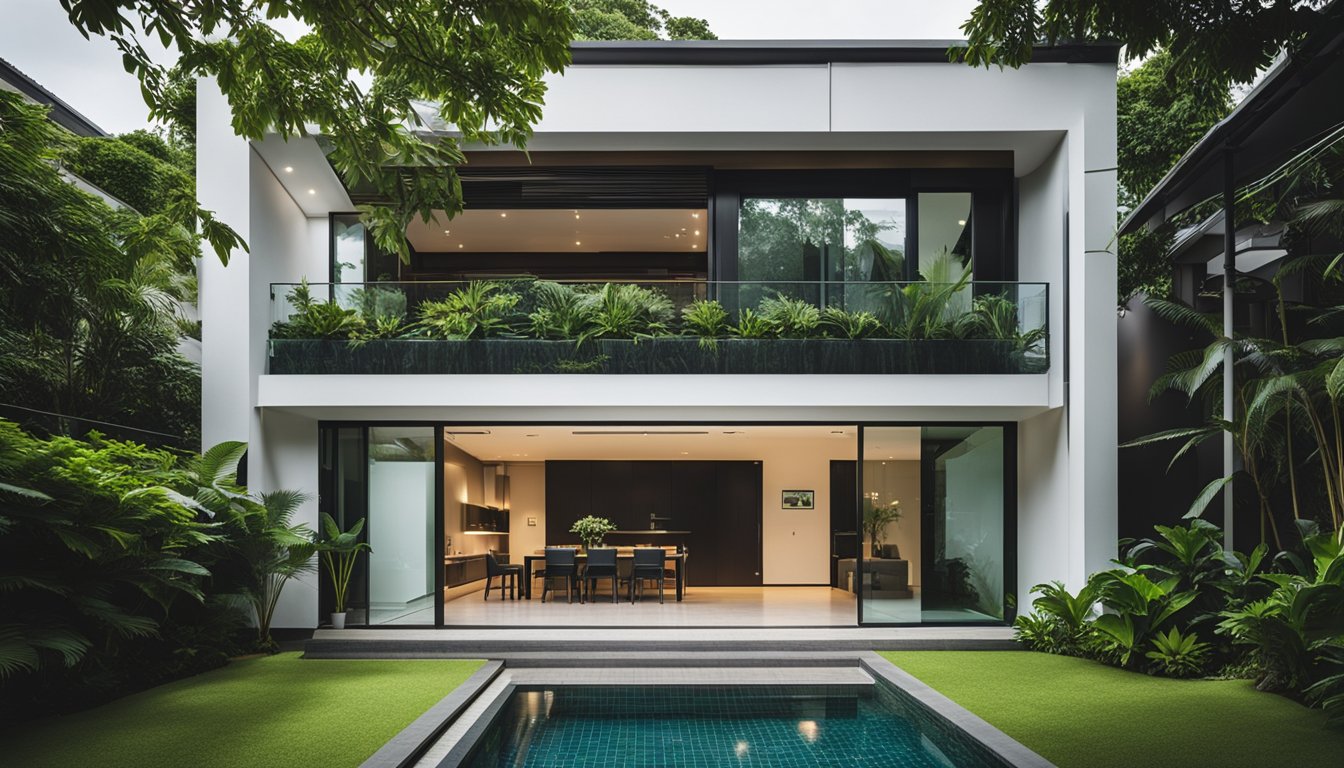
Congratulations on becoming a homeowner in Singapore! Owning your own property is an exciting milestone, and it comes with many benefits. As a Singapore citizen, you have access to a variety of resources to help you navigate the process of homeownership.
Understanding the Role of Essential Occupier
If you are buying a Housing and Development Board (HDB) flat in Singapore, you will need to designate an Essential Occupier. This is a person who will be living in the flat with you and is required to meet certain eligibility criteria. The Essential Occupier must be a Singapore citizen or a Permanent Resident, and they must be at least 21 years old. They must also be either your spouse, parent, child, or sibling.
Accessing Homeownership Resources
Singapore offers a range of resources to help you become a homeowner. One of the most useful tools is the MyHome Planner, which is an online platform that provides personalised advice and guidance on buying a home in Singapore. The MyHome Planner can help you determine how much you can afford to spend on a home, and it can provide you with a list of properties that meet your criteria.
In addition to the MyHome Planner, there are other resources available to Singapore citizens who are looking to buy a home. The Home Planner is a guide that provides information on the various types of housing available in Singapore, as well as the eligibility criteria for each type. The Homeownership Support Team is another resource that can provide you with advice and guidance on buying a home in Singapore.
Overall, owning a home in Singapore is a great investment that can provide you with many benefits. With the help of these resources, you can navigate the process of homeownership with ease and confidence.
Renting vs Buying
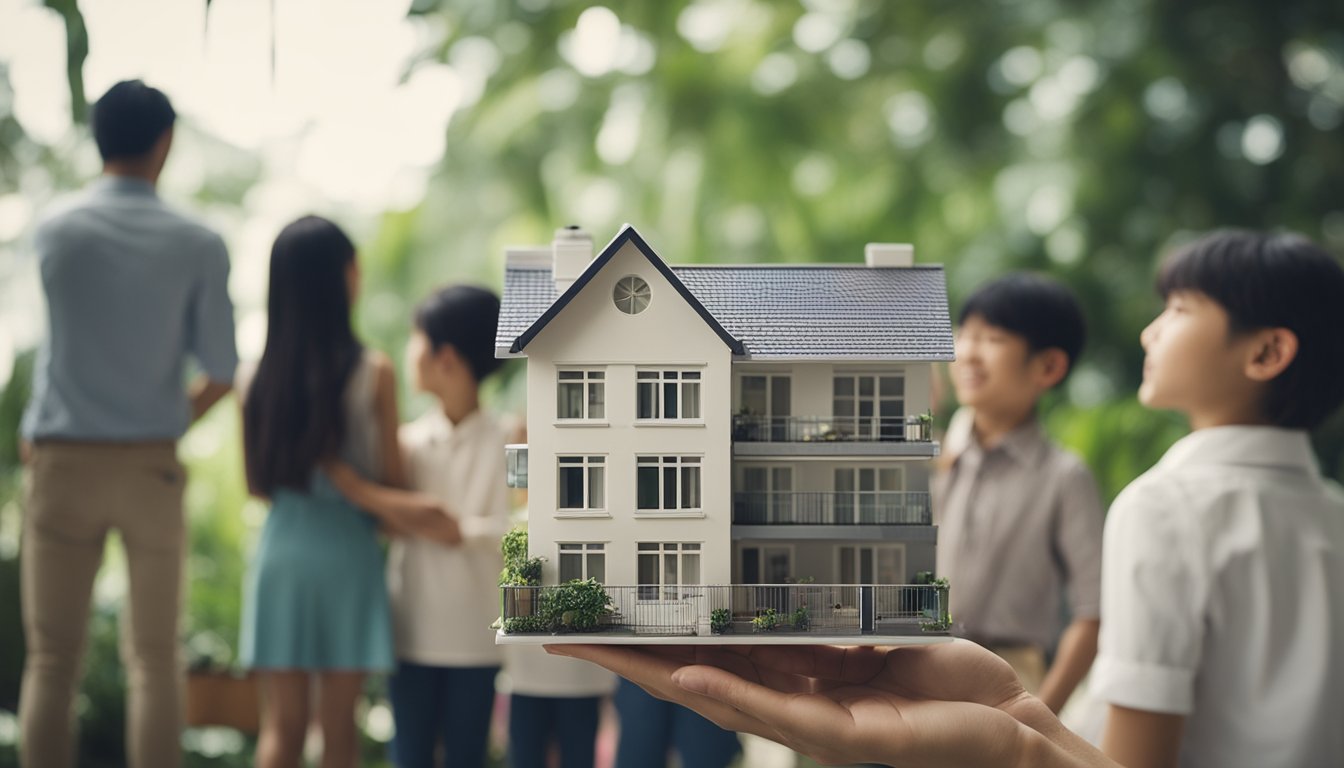
If you are considering buying a house in Singapore, you may have wondered whether it is better to rent or buy. While there are pros and cons to both options, it ultimately depends on your personal circumstances and financial goals.
Comparing Long-Term Costs
One of the main factors to consider when deciding whether to rent or buy is the long-term cost. While buying a house may seem like a big financial commitment upfront, it can be more cost-effective in the long run. For example, if you plan to stay in the same house for many years, buying a house may be a better investment than renting, especially if property prices continue to rise.
On the other hand, if you are not sure how long you will stay in Singapore or if you prefer the flexibility of being able to move around, renting may be a better option. Additionally, renting can be cheaper upfront since you do not have to pay for a down payment or other upfront costs associated with buying a house.
Flexibility and Stability Considerations
Another consideration when deciding whether to rent or buy is the flexibility and stability of each option. Renting provides more flexibility since you can easily move to a new house or location at the end of your lease. This can be especially useful if you have a job that requires you to move around frequently.
On the other hand, owning a house provides more stability since you do not have to worry about your landlord selling the property or increasing your rent. Additionally, owning a house allows you to make changes and improvements to the property, which can increase its value over time.
Ultimately, whether you should rent or buy a house in Singapore depends on your personal circumstances and financial goals. While buying a house can be a good investment in the long run, renting may be a better option if you prefer flexibility and do not want to commit to a long-term financial commitment.
Frequently Asked Questions
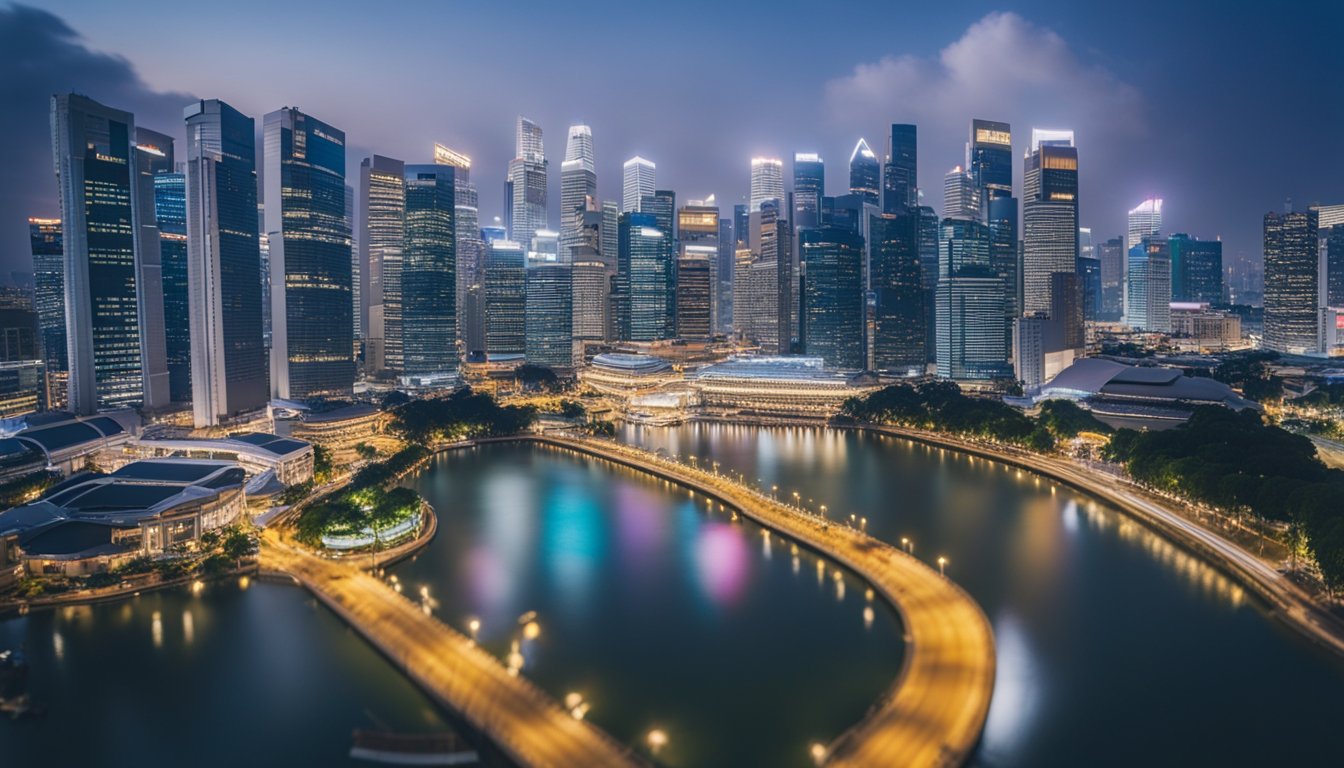
What are the pros and cons of purchasing versus renting a home in Singapore?
Purchasing a home in Singapore can provide stability and a sense of ownership, while renting allows for more flexibility and less financial commitment. Additionally, renting may be more affordable in the short term, while purchasing a home can lead to long-term financial benefits.
How does one decide whether to invest in a property or stay in a rental in Singapore?
The decision to invest in a property or stay in a rental depends on individual circumstances and financial goals. Factors to consider include current financial situation, long-term financial goals, and personal preferences.
What financial considerations should be taken into account when planning to buy a home in Singapore?
When planning to buy a home in Singapore, it is important to consider factors such as down payment, mortgage rates, property taxes, and maintenance costs. It is also important to have a solid understanding of your current financial situation and long-term financial goals.
At what stage in life are most Singaporeans purchasing their own homes?
Most Singaporeans purchase their own homes in their late 20s to early 30s. However, this can vary depending on individual circumstances and financial goals.
Can investing in Singaporean property still be considered a savvy financial move?
Investing in Singaporean property can still be a savvy financial move, as property values in Singapore have historically appreciated over time. However, it is important to carefully consider individual circumstances and financial goals before making any investment decisions.
What are the current market trends indicating about the ideal time to purchase a house in Singapore?
Current market trends indicate that now may be a good time to purchase a house in Singapore, as property prices have been relatively stable and interest rates are low. However, it is important to carefully consider individual circumstances and financial goals before making any investment decisions.

